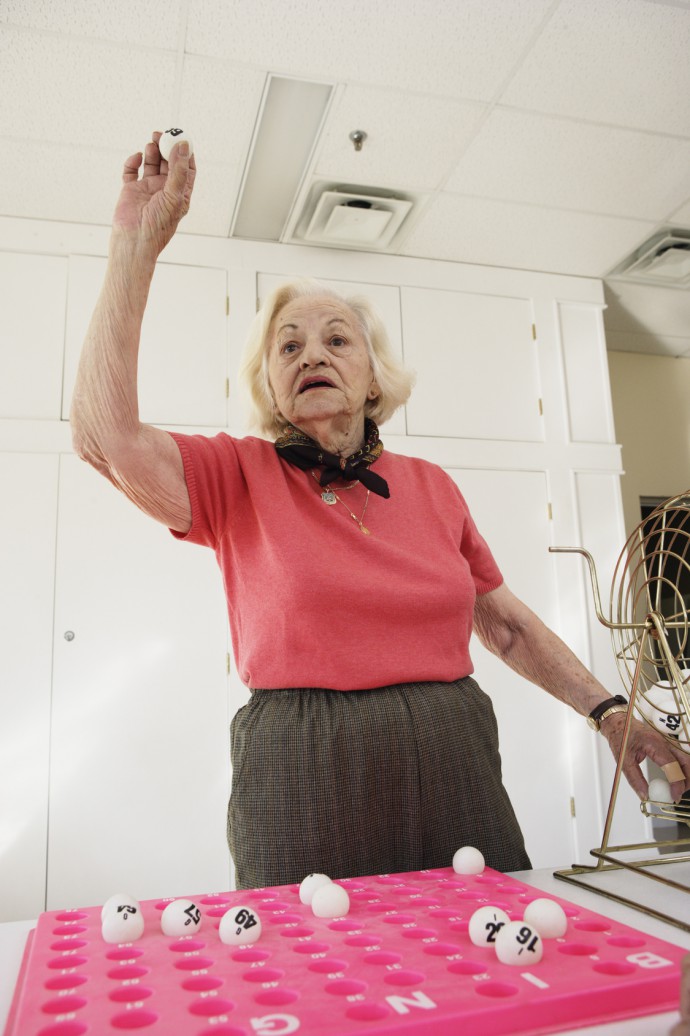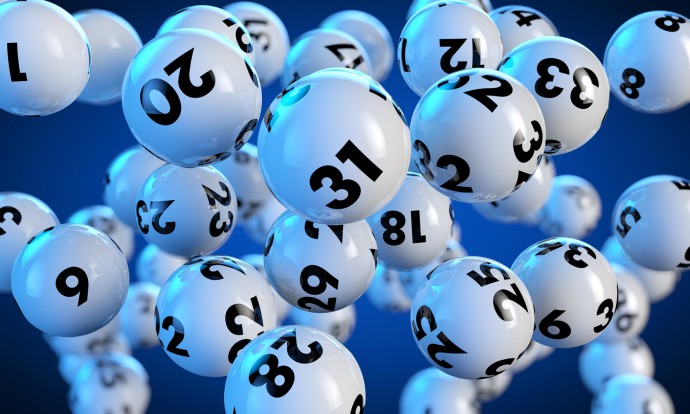A brief history of bingo

In sixteenth-century Venice, some long-forgotten enterprising businessman came up with a new way to make money. Customers would buy tickets for a fixed price which would be put into an urn. Tickets representing things that people wanted to buy—“precios”, or “prizes”, such as silk, beads, cats, and horses—were put into a second urn, along with some simply marked “pacientia”, or “patience”.
After a while, sales of tickets would cease, and the trader would simultaneously draw tickets from each urn: those whose ticket came out at the same time as one bearing the name of a prize would win it; those whose ticket came out at the same time as one bearing “patience” would win nothing.
This became known as “lotto”, and before long, everyone was obsessed, as captured in the famous diaries of Marin Sanudo:
At present, in this Rialto district, nothing is done except put money on the lottery. First anyone who wished to adventure had to give 20 soldi, then it grew to 3 lire, then to a ducat. And the prizes were carpets and other things; now there are money prizes, 200 ducats, and a piece of cloth of gold has been offered.
As this business grew and grew, the draws got bigger and bigger, sometimes lasting days at a time and drawing huge crowds. Before long, people worked out how to piggyback on the lotto market to make a secondary profit: selling the rights to tickets at inflated prices once the draw had started, with the twin advantages of: the in-play ticket having a higher change of winning because of the elimination of smaller prices (essentially, sixteenth-century Deal or No Deal); and capitalising on the fact that people didn’t have the time to stand around to wait for the culmination of a multi-day draw. This market in second-hand tickets become known as “bagarinaggio”.
This game had sticking power, and—despite an early decline at the hands of over-zealous Italian tax reforms—is the foundation on which everything from the National Lottery to charity raffles to Christmas tombolas is built.

Perhaps the closest modern analogue to sixteenth-century Venice’s favourite game is bingo. Unlike most other descendants of the idea, bingo retains the aspect of bringing large crowds together at one time in one place to apparently compete in an activity whose winner is randomly determined.
Before we go on… a personal confession. I don’t enjoy bingo: I find it interminably dull. We used to play bingo at home with relatives at Christmas when I was little, and I always wanted to be the bingo caller because being the player was so very boring. It just does nothing for me at all.
After a period being played underground—especially in the First World War—bingo was finally legalised in Britain in 1960. At once, the craze swept the nation. By 1963, something like a third of the adult population—14 million people—were members of bingo clubs. As high street picture houses and dance halls became unprofitable with the rise of television, they were often converted into bingo halls.
Perhaps because gambling was still a little unseemly, or perhaps to extend their reach, bingo halls often called themselves something else entirely: two large operators, Top Rank and Granada plumped for “social clubs”. It’s hard not to notice the similarity to coffee shops today: these frequently try and sell themselves as community hubs or venues for groups to meet, rather than merely shops that sell hot beverages. Perhaps it’s a necessary part of winning “heart and minds” to facilitate a rapid expansion.
Over the next two decades, bingo halls went from strength to strength. By the 1980s, national bingo games were being launched which networked clubs across the country together, and the first purpose-built bingo halls were appearing on the scene.
But in the 1990s, things changed. Bingo started to decline. This seems to be most commonly attributed to the National Lottery, but—to my mind, at least—this seems an unlikely association. It strikes me that there is a considerable difference between attending a bingo club with friends and the solitary activity of buying a lottery ticket at the corner shop. The bigger problem may have been that the average age of a bingo club member in 1990 was 62, and tastes had simply moved on.
Bingo hall after bingo hall closed—a fifth of all halls closed between 1995 and 2000. The decline continued into the new century, arguably hastened by the introduction of the smoking ban in 2007: industry experts estimate that some 50% of players previously smoked while playing, and many of them left when this was banned.
Also in 2007, in response to claims that the National Lottery’s huge jackpots had harmed the bingo industry, the Gambling Act allowed clubs to introduce games with rollover prizes for the first time. This led to much bigger jackpots: just months after the new rules were introduced, there was widespread media coverage of a £1.1million win.
Despite this—and perhaps giving the lie to the idea that National Lottery jackpots were behind the decline in the first place—the bingo sector continued to shrink, serving just 3 million customers in 2011. By June 2012, just 468 bingo clubs remained—and 16% of those closed by June 2013.
In March 2014, Chancellor George Osbourne cut the tax on bingo halls from 20% to 10% “to protect jobs and protect communities”—though given the moribund state of the industry, it’s hard to imagine there was much left to protect. It has had some effect: chains new clubs are opening, albeit in the single-figures after many years of double-digit decline. I suspect that club number have continued to fall on an industry-wide basis, but can’t find the figures to confirm this. Commentators claim that chains opening new venues is evidence of revitalisation of the bingo industry; I’m afraid I simply can’t see it. I can’t foresee bingo halls being more than a historical curiosity in a decade’s time. Perhaps I’m wrong.

But, of course, there’s a whole other side to this story. Online bingo has grown exponentially over the last decade: there were 20 UK bingo sites in 2004, while there are 350 today. The lack of venue overheads has transformed the cost structure of the game: online games cost as little as a penny, and rarely more than 10p. And the industry’s expansion has heralded new operators, perhaps better equipped to compete in the digital world that bingo hall operators of old.
Many of the market leaders, such as Foxy Bingo, Costa Bingo and Cheeky Bingo are entirely new operators. It has been said that The Sun makes more money from its online bingo operation that it does from selling newspapers.
Allow me another personal confession: I don’t understand the appeal of online bingo. When given a free trial of a couple of sites, I could not have been more bored. At least in physical bingo, one does have to keep up with marking one’s tickets. Not so in most versions of online bingo, where either tickets are marked for you, or you are declared to have won whether you keep up or not. All of the sites also had chat rooms, but these were qualitatively no different to those that can be found anywhere online: they certainly didn’t strike me as a compelling reason to log on to the sites. The experience isn’t one I’d recommend.
The online bingo market seems like it is still nascent. The explosive growth of advertising for bingo sites is necessary as indications are that brand recognition and loyalty seems fairly poor: when Google changed its search rankings in 2013, it transformed the market. 888, which used to be everywhere, was one of the big losers of this change.
It’s curious that some bingo sites—much like early bingo halls—are starting to position themselves more as online social venues that gambling sites. It’s hard to tell whether this is a reflection of genuine demand, or a fig leaf to cover the desire to gamble as it seems to have been in the 1960s.
With the lack of interaction necessary in online bingo games, I wonder whether they are really “bingo” in the traditional sense at all. Perhaps sixteenth century Italian lotto has taken another evolutionary step; or perhaps online bingo—bingo without the time and concentration commitment—is today’s “bagarinaggio“.
In a case of history repeating itself yet again, politicians seem to be starting to consider online gambling as a possible source of tax income: just like the Italians centuries ago and the bingo halls of the 1960s, the market might be harmed by burdensome tax rates.
Really, I’ve no idea what the future holds. But one thing is certain: I’ll enjoy standing by and watching more than I’d enjoy a game of bingo.
You can read far more on the history of bingo in Britain in this fascinating report written by my friend Graham Soult for Two Little Fleas.
I was invited (though not paid) to write this post by a company marketing a report on Britain's bingo market written by Graham Soult for an online bingo comparison site, Two Little Fleas. Much of the content of this post is based on Graham's report: it is repeated in this post with kind permission. You can see the report in full on the Two Little Fleas website.
This post was filed under: Miscellaneous, Bingo.